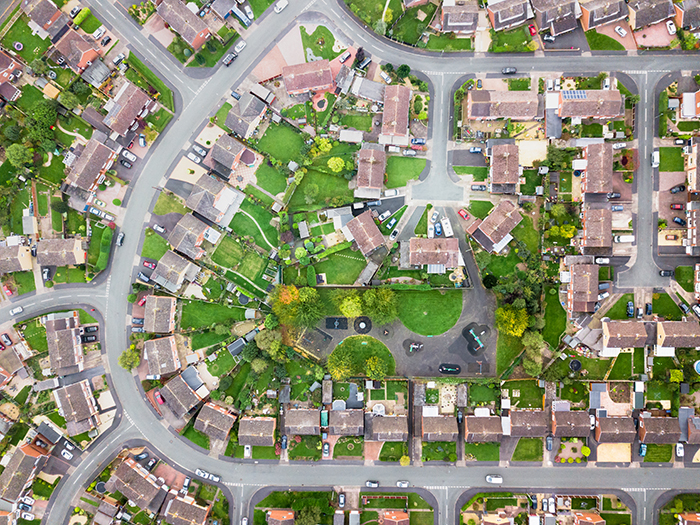
UK average house prices rose by 1.3% to £291,029 in January, the fourth monthly rise in a row, data from Halifax shows.
Property prices are now growing at 2.5% annually, the highest yearly growth since last January, according to the lender’s latest House Price Index.
Northern Ireland posted the strongest growth across all the UK’s nations and regions lifting 5.3% to £195,760 from a year ago.
However, homes in the South East fell the most last month across the country, selling for an average of £379,220, which is 2.3% lower than a year ago.
London retains the top spot for the highest average house price in the UK, at £529,528, although prices in the capital have slipped 0.4% on an annual basis.
Halifax Mortgages director Kim Kinnaird says: “The recent reduction of mortgage rates from lenders as competition picks up, alongside fading inflationary pressures and a still-resilient labour market has contributed to increased confidence among buyers and sellers.
“This has resulted in a positive start to 2024’s housing market.”
“However, while housing activity has increased over recent months, interest rates remain elevated compared to the historic lows seen in recent years and demand continues to exceed supply.
“For those looking to buy a first home, the average deposit raised is now £53,414, around 19% of the purchase price. It’s not surprising that 63% of new buyers getting a foot on the ladder are now buying in joint names.”
SPF Private Clients chief executive Mark Harris adds: “The housing market has got off to a strong start this year, with buyer and seller confidence boosted by four consecutive interest rate holds and the growing belief that the next move in rates will be downwards.
“However, there will still be bumps in the road ahead. While increased competitiveness has led to lower mortgage rates this year, some lenders have also been raising rates.
“Swap rates, which underpin the pricing of fixed-rate mortgages, have been rising since the turn of the new year, resulting in some ‘best buy’ mortgage rates increasing.”
MT Finance director Tomer Aboody points out: “Another strong month in house price rises, underlining once more the confidence in the market.
“Stable interest rates, a reduction in mortgage rates and less than half the inflation of last year, have combined to persuade buyers that now is the time to buy.
“A further push is needed to encourage sellers to put properties on the market, with a reduction in stamp duty in next month’s Budget one option the government should consider.”
EY ITEM Club chief economic advisor Martin Beck says: “While a relatively shallow house price cycle is good news in terms of maintaining financial stability and avoiding the experience of previous price corrections where large numbers of borrowers fell into negative equity, it is likely to limit the scope for house price growth in the near-term.
“And even if the official Bank of England policy rate aligns with the EY ITEM Club’s expectation of a total of 125 basis points of cuts this year, mortgage rates will remain significantly higher than for much of the last decade or so.
“As a result, the EY ITEM Club thinks this year will see house prices broadly flatline, rather than stage a significant rebound.”
Jeremy Leaf, north London estate agent and a former Rics residential chairman adds: “Lenders lowering mortgage repayments in anticipation of falling base rate later in 2024 following the faster than expected drop in inflation, has increased buyer confidence.
“In our offices, more valuations, listings and especially viewings has been the result.
“However, lingering cost-of-living worries mean the market remains price-sensitive so it is only the realistic sellers who are able to take advantage. Over-optimism will stop any recovery in its tracks.”



